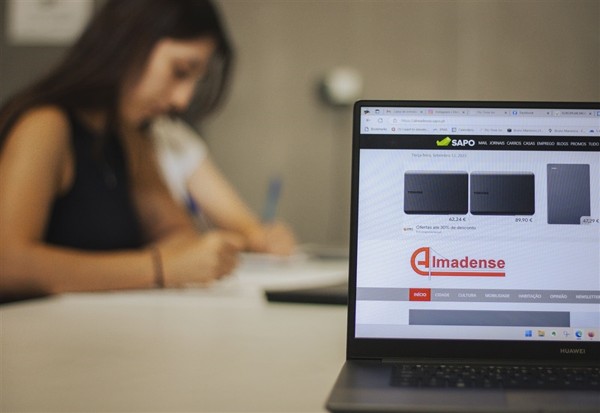On the fourth day of IPI’s visit to Finland as part of its OnTheLine project, which focuses on researching and combating the online harassment of journalists, we had the chance to visit two of the country’s biggest national media outlets: liberal newspaper Helsingin Sanomat and public broadcaster Yle.
As part of our visits, we met with editors-in-chief, managing editors, heads of journalistic standards and ethics as well as heads of audience and moderation, in addition to individual journalists.
Though further and more detailed analysis will come in the next weeks, in general both Helsingin Sanomat and Yle are aware of the impact of online abuse towards their journalists and they have discussed the issue in their newsrooms, though they recognize more could be done. They are also concerned about the normalization of online violence.
Here are, briefly, some of the lessons we learned from these working visits:
Strategies to prevent online harassment
– Editors, managers and journalists we spoke with agreed that there is a need to develop more preventive measures, especially when it comes to psychosocial support. Among other ideas, they welcomed suggestions such as:
- Conducting an anonymous and confidential survey in the newsroom to map the extent of the issue.
- Training journalists on the most common aspects of online attacks and briefly preparing them for such cases, regardless of whether they have been previously attacked or not, which could soften the emotional toll if they become targets of online harassment.
- Informing journalists and moderators better about the available support mechanisms such as legal assistance, digital security, psychological support, health care and physical safety if required.
– Mentoring programmes provided by senior colleagues to new journalists could help them avoid the usual triggers that ignite online harassment.
– Frequent interactions with the audience via social media channels to enhance quality and constructive conversations can corner online violence and serve as a long-term solution towards a more sustainable online culture.
Response strategies in cases of online abuse
– At both Helsingin Sanomat and Yle, colleagues are the first resource targeted journalists turn to for help. Only in extreme cases are department editors and editors-in-chief involved. In these situations, legal and security departments will conduct a risk assessment and take pertinent measures.
– Editors and other supervisors emphasized that the tendency to communicate harassment to upper levels differs from person to person.
– Editors remind journalists that they are not alone and that the company stands behind them through the ordeal, and encourage journalists to continue their work to fight the chilling effect.
– Public statements expressing support for targeted journalists and loudly communicating that harassment and pressure will not affect journalistic standards have proven useful. However, editors also assess each individual case and, in certain cases, decide not to publicly point out affected journalists since further attention could only worsen the harassment.
– Peer support is of utmost importance and it can even reach beyond company lines. Being in contact with others with similar experiences helps to navigate the first phases of an online hate campaign.
The broader picture
– Journalists who have been previously harassed say that they carefully select their words when writing about sensitive topics, employing a clear and precise phrasing so propaganda sites cannot manipulate their stories and ignite the subsequent avalanche of abusive comments towards them. However, they emphasize that one must be careful not to slip into self-censorship.
– Online harassment and smear campaigns also affect other parts of the society: e.g., some academics or other members of the public have refused to give interviews with their own names and faces. This was described as a threat to freedom of speech, eroding Finland’s open and free society.
– The degree of normalization when it comes to abusive language and online violence is alarming, Finnish editors and journalists say. Together with a culture of silence and toughness, the threshold of taking abusive language and threats seriously and reporting them is moved even further.
– Disinformation campaigns by propaganda websites can affect the credibility of a journalist and create a chilling effect. Information about disinformation and ways to differentiate legitimate information from propaganda should thus be distributed.
Today, June 8, IPI is concluding its week-long fact-finding mission in Finland with a focus group session with freelancers, and a meeting with Yle’s legal experts.
Later this month, IPI will visit Poland, the third of six EU countries being intensively studied as part of our #OnTheLine project, which aims at developing practical guidelines to tackle online harassment against journalists, and the OSCE RFoM’s #SOFJO campaign for the safety of female journalists online.
Read more from our June 4 to 8 visit to Finland:
Finland’s journalists concerned about normalization of online violence
Journalists covering Russian interference and immigration in Finland face abuse online



